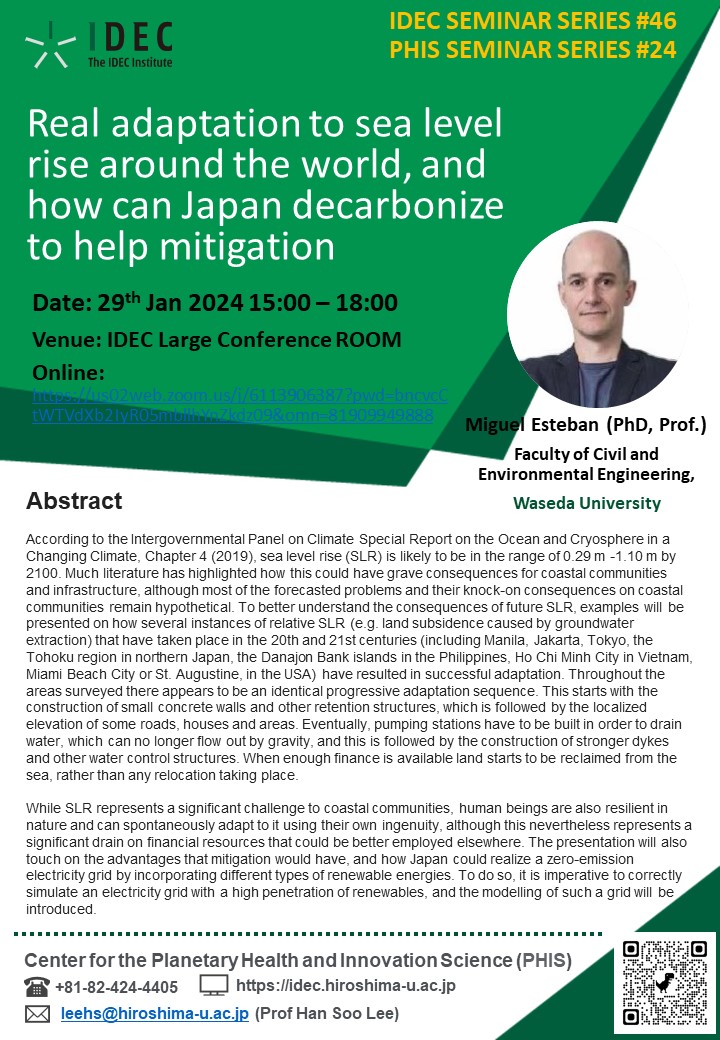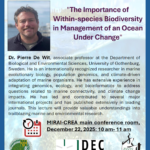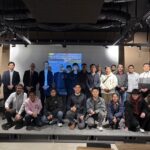IDEC SEMINAR SERIES #46 / PHIS SEMINAR SERIES #24
“Real adaptation to sea level rise around the world, and how can Japan decarbonize to help mitigation”
Speaker: Miguel Esteban (PhD, Prof), Waseda University
Date: 29th Jan 2024 15:00 – 18:00
Venue: IDEC Large Conference ROOM
Online:
Abstract
According to the Intergovernmental Panel on Climate Special Report on the Ocean and Cryosphere in a Changing Climate, Chapter 4 (2019), sea level rise (SLR) is likely to be in the range of 0.29 m -1.10 m by 2100. Much literature has highlighted how this could have grave consequences for coastal communities and infrastructure, although most of the forecasted problems and their knock-on consequences on coastal communities remain hypothetical. To better understand the consequences of future SLR, examples will be presented on how several instances of relative SLR (e.g. land subsidence caused by groundwater extraction) that have taken place in the 20th and 21st centuries (including Manila, Jakarta, Tokyo, the Tohoku region in northern Japan, the Danajon Bank islands in the Philippines, Ho Chi Minh City in Vietnam, Miami Beach City or St. Augustine, in the USA) have resulted in successful adaptation. Throughout the areas surveyed there appears to be an identical progressive adaptation sequence. This starts with the construction of small concrete walls and other retention structures, which is followed by the localized elevation of some roads, houses and areas. Eventually, pumping stations have to be built in order to drain water, which can no longer flow out by gravity, and this is followed by the construction of stronger dykes and other water control structures. When enough finance is available land starts to be reclaimed from the sea, rather than any relocation taking place.
While SLR represents a significant challenge to coastal communities, human beings are also resilient in nature and can spontaneously adapt to it using their own ingenuity, although this nevertheless represents a significant drain on financial resources that could be better employed elsewhere. The presentation will also touch on the advantages that mitigation would have, and how Japan could realize a zero-emission electricity grid by incorporating different types of renewable energies. To do so, it is imperative to correctly simulate an electricity grid with a high penetration of renewables, and the modelling of such a grid will be introduced.
Contact: Prof Han Soo LEE, PHIS, The IDEC Institute, Hiroshima University






